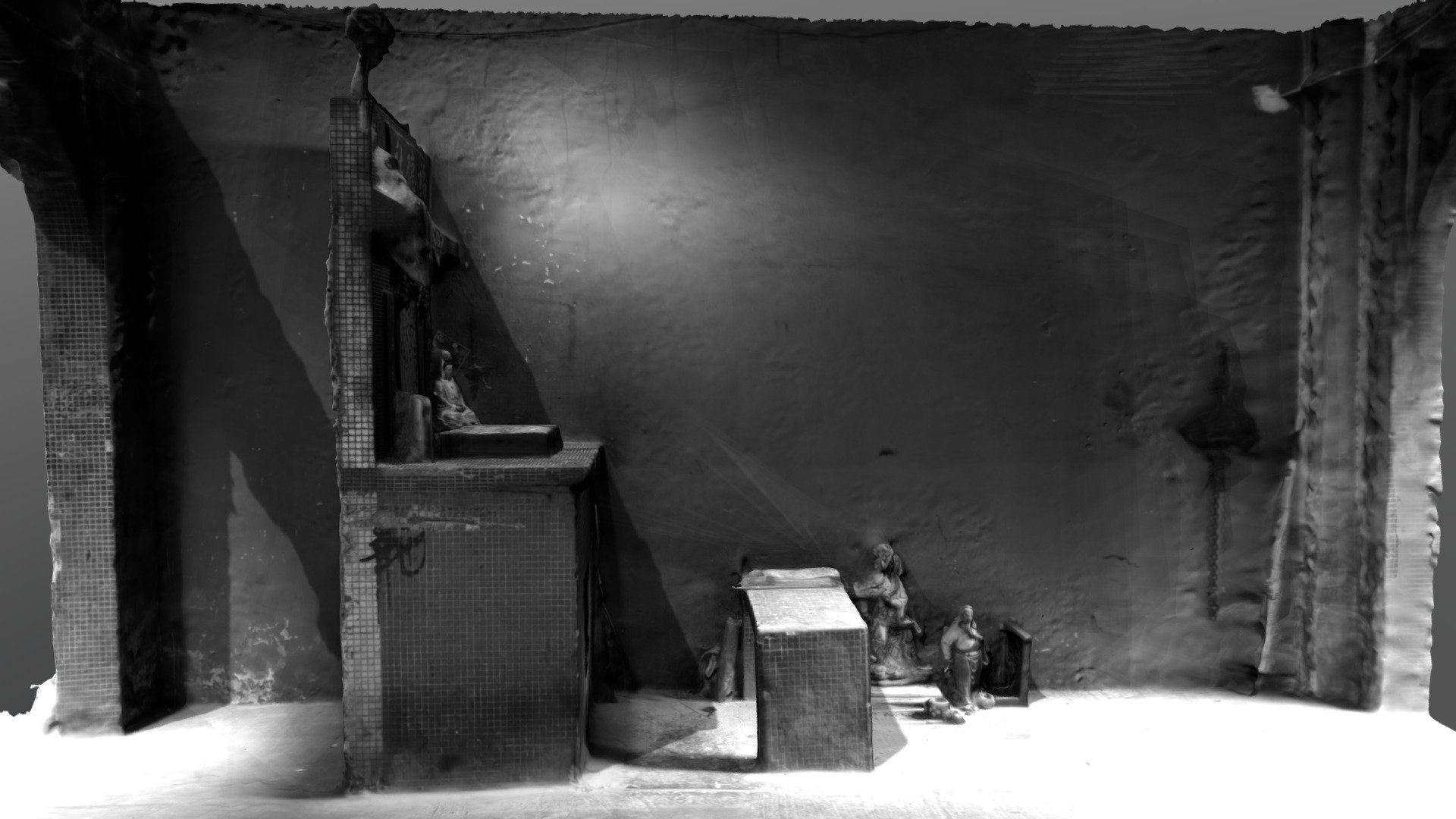
福德社土地神位(夜呣里)(黑白版本)
sketchfab
In the past, streets like Ji Qing Alley and numerous parallel lanes were like fishermen casting a fine net into the sea, with only enough room for people to pass through. The narrow width of these alleys was inherited from the coastal shantytowns, while the closely packed houses on either side symbolized the solidarity of the fishing community. During the reign of Emperor Tongzhi in the Qing dynasty, private developers filled and leveled the sea at Luoshan Tang, leaving Macau-born Portuguese people uncertain about their identity in the late 18th century. The dominant Chinese culture had permeated them for two to three centuries, leaving only mixed bloodline features, surnames, some privileges of the ruling class, and a sense of belonging - Macau Province. Chinese folk customs infused their lives, although not as tight as a noose, but the ratio of Portuguese or Macanese blood components fluctuated, with cultural consciousness born on Macau soil, evolving into a small "native culture" system. The native culture grasped their throats, and Western politics lurking in the shadows could only occasionally pull strings, but ultimately couldn't reach them. As marginal people, they lived at the edge of the river, far from mainstream society; through endless nights, they finally encountered the historical convergence of East and West, and the Macanese Portuguese shed their identity as a concubine living on the margins - identifying with their ancestors and returning to "China".
With this file you will be able to print 福德社土地神位(夜呣里)(黑白版本) with your 3D printer. Click on the button and save the file on your computer to work, edit or customize your design. You can also find more 3D designs for printers on 福德社土地神位(夜呣里)(黑白版本).
